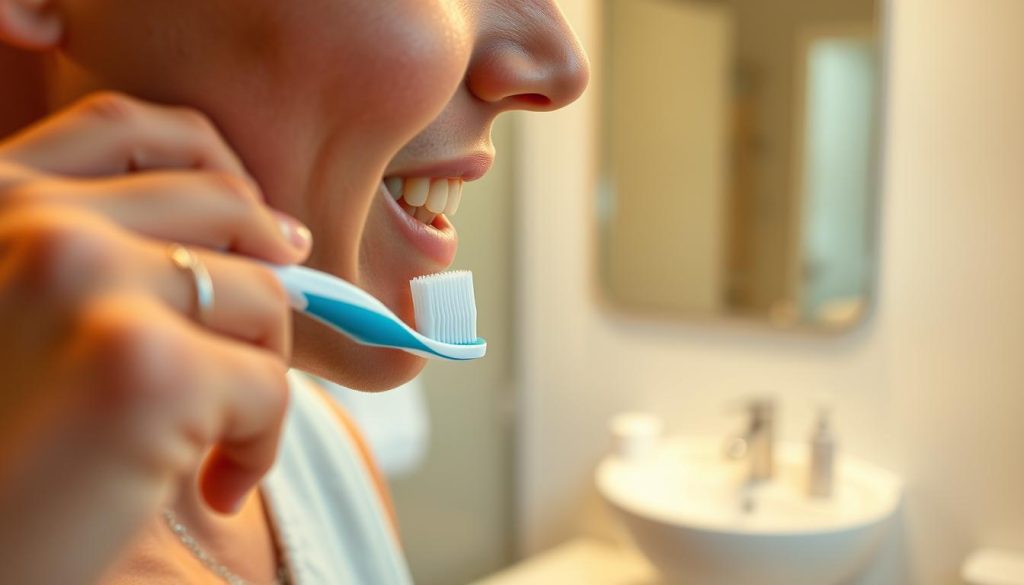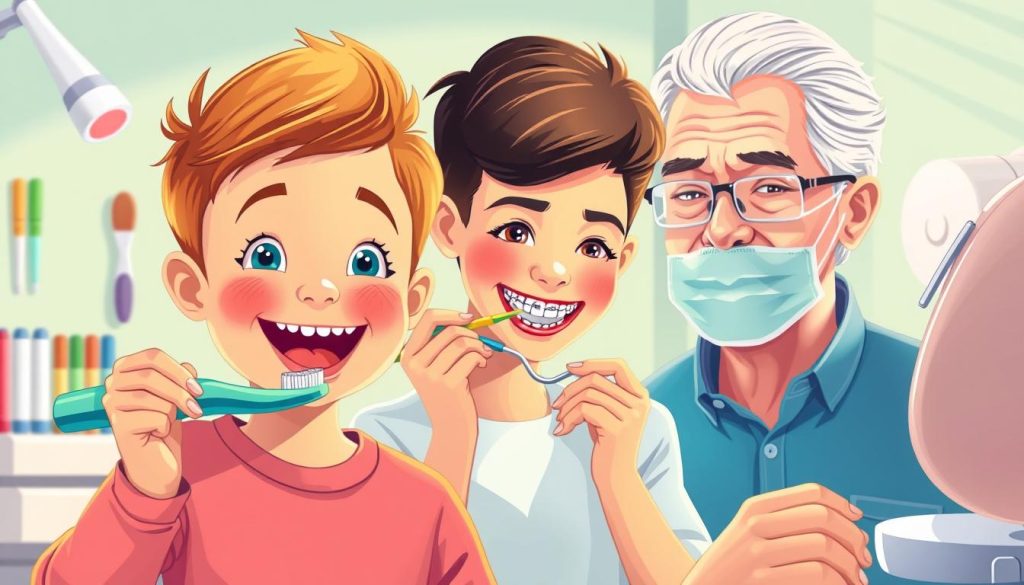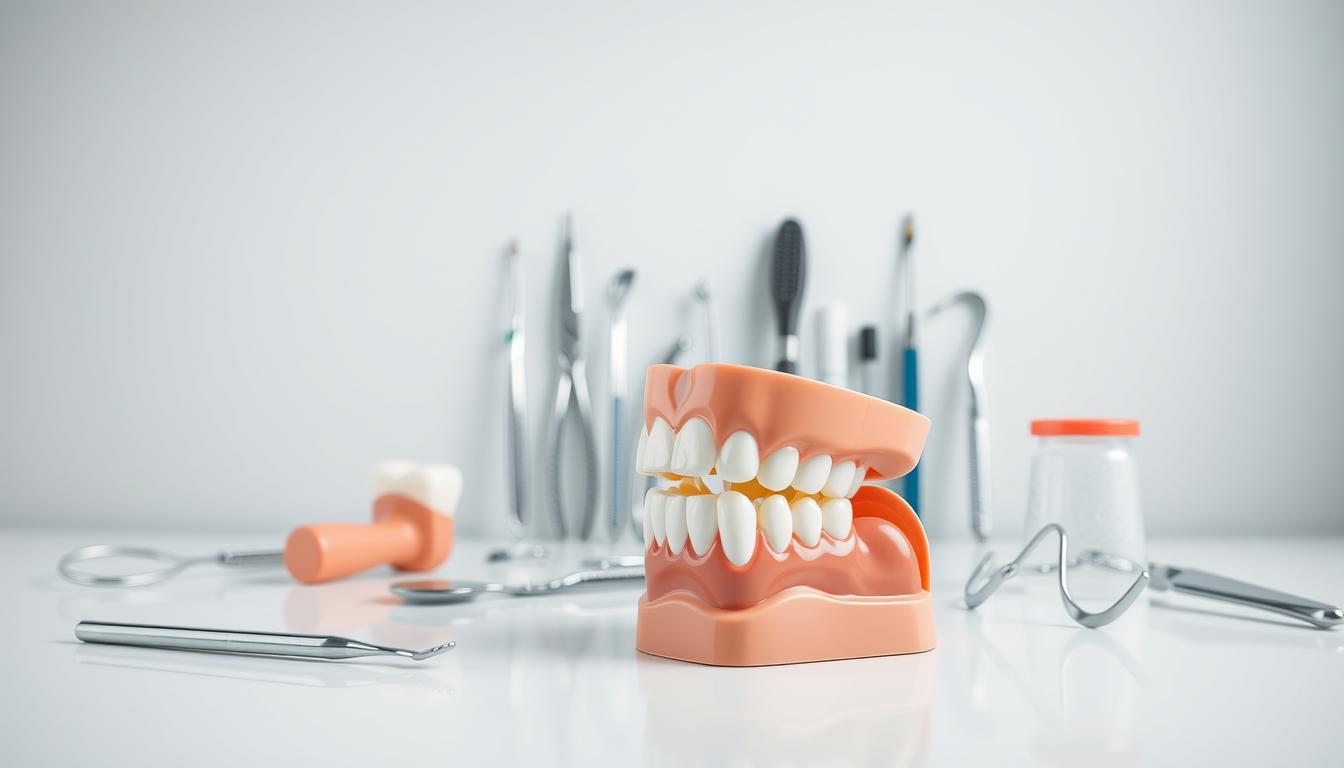Are you aware of the secrets to maintaining a healthy, radiant smile? A comprehensive dental guide can be your key to unlocking the mysteries of oral health.
Good oral hygiene is not just about having a bright smile; it’s crucial for overall health. A well-maintained mouth can prevent a variety of health issues, from gum disease to more serious conditions.
Our dental care guides are designed to provide you with the knowledge and tools necessary to achieve optimal oral health. From the basics of brushing and flossing to more advanced care techniques, we’ll cover it all.
Key Takeaways
- Understand the importance of a comprehensive oral health routine.
- Learn effective techniques for maintaining healthy teeth and gums.
- Discover how diet and lifestyle choices impact your oral health.
- Explore the benefits of regular dental check-ups.
- Gain insights into common oral health issues and how to prevent them.
The Foundation of Dental Wellness
The journey to optimal dental wellness begins with understanding its foundational elements. Dental wellness is not just about having a bright smile; it’s a critical component of our overall health. By grasping the basics of oral health, individuals can take significant steps towards maintaining a healthy mouth and, by extension, a healthier body.
Understanding the Importance of Oral Health
Oral health is more than just brushing and flossing; it encompasses a range of practices and habits that contribute to the well-being of our mouth. Effective oral hygiene helps prevent dental problems such as cavities and gum disease. Moreover, regular dental check-ups are crucial for early detection and treatment of oral health issues. By following oral health tips, individuals can significantly reduce the risk of dental problems.
| Oral Health Practice | Benefits |
|---|---|
| Brushing Twice Daily | Removes plaque, prevents cavities |
| Flossing Daily | Removes food particles, prevents gum disease |
| Regular Dental Check-Ups | Early detection of oral health issues |
The Connection Between Oral Health and Overall Wellness
There’s a significant link between oral health and overall wellness. Research has shown that there’s a correlation between gum disease and various systemic health conditions, including heart disease and diabetes. Maintaining oral health is not just about the mouth; it’s about contributing to the health of the entire body. By prioritizing maintaining oral health, individuals can potentially reduce the risk of broader health issues.
For those seeking dental wellness resources, there are numerous guides and tips available that can help in maintaining good oral hygiene. From proper brushing techniques to the importance of fluoride, understanding these elements can significantly enhance one’s dental health.
Essential Daily Dental Care Guides
Effective daily dental care practices are vital for maintaining healthy teeth and gums. A consistent routine helps prevent common dental issues and promotes overall oral health. By incorporating simple yet effective practices into your daily regimen, you can achieve a healthier, happier smile.
Mastering Proper Brushing Techniques
Brushing your teeth is the foundation of good oral hygiene. To do it effectively, you need to choose the right tools and follow a systematic approach.
Selecting the Right Toothbrush and Toothpaste
Choosing a toothbrush with soft bristles and a toothpaste that contains fluoride is crucial. The American Dental Association (ADA) recommends using products with the ADA Seal of Acceptance, ensuring they meet dental hygiene standards.
Step-by-Step Brushing Method
To brush your teeth correctly, follow these steps:
- Place the toothbrush against your teeth at a 45-degree angle.
- Gently move the brush back and forth in small circular motions.
- Ensure you cover all surfaces: outer, inner, and chewing surfaces.
- Brush for at least two minutes, twice a day.

The Art of Effective Flossing
Flossing is crucial for removing food particles and plaque from between your teeth and under the gumline, areas a toothbrush can’t reach. To floss effectively, wrap the floss around your middle fingers, leaving about an inch of floss between them. Gently slide the floss between your teeth, curving it around each tooth in a “C” shape. This helps prevent gingivitis and promotes healthy gums.
Incorporating Mouthwash Into Your Routine
Using mouthwash can add an extra layer of protection against plaque, gingivitis, and bad breath. Look for a mouthwash that carries the ADA Seal of Acceptance and contains ingredients like fluoride or antibacterial agents. Swish the mouthwash around your mouth for 30 seconds to 1 minute before spitting it out.
Tongue Cleaning and Its Benefits
Cleaning your tongue is often overlooked but is an important part of oral hygiene. Bacteria can accumulate on the tongue’s surface, leading to bad breath and other issues. Use a tongue scraper or your toothbrush to gently clean your tongue, starting from the back and moving forward. This simple practice can significantly improve your oral freshness and overall hygiene.
By mastering these dental hygiene best practices, you can maintain a healthy, vibrant smile. Remember, consistency is key, so make these practices a part of your daily routine.
Advanced Dental Hygiene Best Practices
Maintaining a healthy smile requires more than just regular brushing and flossing; it demands a comprehensive approach to dental hygiene. By incorporating advanced practices into your daily routine, you can significantly enhance your oral health.
Nutrition Strategies for Stronger Teeth
A well-balanced diet plays a crucial role in maintaining strong teeth and healthy gums. Certain foods and beverages can either strengthen or weaken your teeth, making nutrition a key aspect of dental care.
Foods That Strengthen Enamel
Foods rich in calcium and vitamins, such as dairy products, leafy greens, and nuts, can help fortify tooth enamel. Crunchy fruits and vegetables like apples and carrots can also stimulate saliva production, which helps neutralize acids and remineralize teeth.
Beverages to Enjoy and Avoid
While water is the best beverage for oral health, other drinks like milk and green tea can also be beneficial. On the other hand, sugary drinks and acidic beverages like soda and citrus juices can erode enamel and should be consumed in moderation.
Addressing Common Dental Problems Early
Early detection and treatment of dental issues can prevent more severe problems from developing. Regular check-ups and being aware of the signs of common dental problems, such as tooth decay and gum disease, are essential for maintaining good oral health.
Specialized Tools for Enhanced Oral Care
In addition to regular brushing and flossing, using specialized tools can further enhance your oral care routine. Interdental brushes, for example, can help clean between teeth more effectively, while electric toothbrushes can provide a more thorough clean than manual brushes.
By incorporating these advanced dental hygiene best practices into your daily routine, you can achieve a healthier, more radiant smile.
Comprehensive Dental Care Guides for Different Life Stages
As people journey through different stages of life, their dental care needs evolve, requiring tailored approaches to maintain optimal oral health. This understanding is fundamental in providing effective dental hygiene advice that caters to the unique requirements of each stage.
Children’s Dental Care Essentials
For children, establishing good oral hygiene habits from an early age is crucial. This includes gentle brushing with fluoride toothpaste, regular flossing as soon as they have two teeth that touch, and limiting sugary snacks and drinks. Regular dental visits starting from their first tooth help in early detection of any oral health issues.
Adult Dental Maintenance Strategies
Adults should continue to practice good oral hygiene, including brushing twice a day and flossing daily. Regular dental check-ups are essential for maintaining oral health and catching any potential issues early. Adults should also consider their dietary choices and avoid excessive sugar and acidic foods that can erode tooth enamel.
Senior Dental Health Considerations
Seniors face unique dental challenges, such as dry mouth, gum recession, and tooth loss. Using a fluoride mouthwash and practicing good oral hygiene can help mitigate some of these issues. Regular dental visits are crucial for seniors to manage their oral health effectively and address any concerns related to dentures or other dental appliances.

| Life Stage | Key Dental Care Practices | Common Issues |
|---|---|---|
| Children | Gentle brushing, regular flossing, limited sugary snacks | Tooth decay, early gum disease |
| Adults | Brushing twice a day, flossing daily, regular dental check-ups | Gum disease, tooth wear |
| Seniors | Fluoride mouthwash, managing dry mouth, denture care | Dry mouth, gum recession, tooth loss |
Maintaining Optimal Oral Health
By following the dental care guides outlined in this article, individuals can significantly improve their oral health and overall wellness. Incorporating proper brushing techniques, effective flossing, and other essential practices into daily routines can help prevent common dental problems.
Adhering to dental health recommendations and implementing dental care tips can lead to a healthier, more confident smile. Regular dental check-ups and a balanced diet also play crucial roles in maintaining optimal oral health.
By making informed choices and staying committed to good oral hygiene practices, individuals can enjoy a lifetime of healthy teeth and gums. Start your journey to optimal oral health today by putting these valuable dental care tips into practice.

Leave a Reply